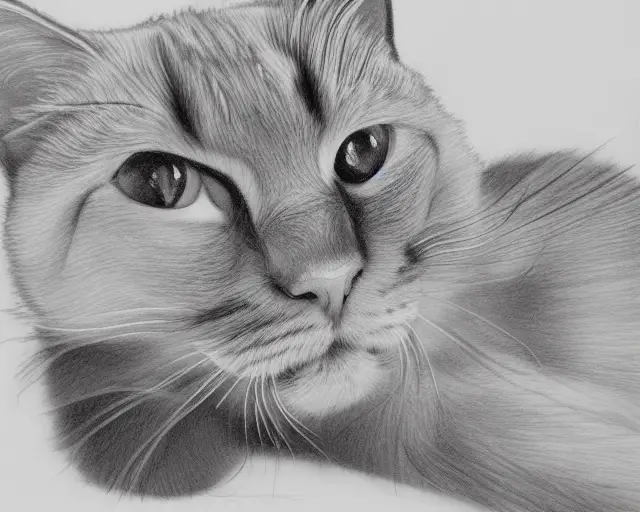If you have an older cat, you’re probably noticing that he or she is peeing outside the litter box more often than normal. While this is a completely natural occurrence, you can take steps to fix it. Here are a few tips that may help. Also, read our articles on Arthritis, Constipation, and Anxiety.
Peeing outside the litter box
Peeing outside the litter box is an unpleasant experience for your cat, and it can cause a variety of problems. Some of these problems can be treated at home, but in more serious cases, your cat might need veterinary care. A urinary tract infection is one of the most common causes of inappropriate elimination in older cats. Urinary tract infections are caused by bacteria in the urine, and they can be very painful for your cat. Your vet can prescribe medications to relieve the pain and infection.
A sudden change in routine can cause stress in your senior cat. Whether you’re moving house, getting a new pet, or experiencing unusual noises, your cat may be stressed and start peeing outside the litter box. If your cat pees outside the litter box because of stress, it’s important to find out what’s causing the issue.
Another cause of frequent outside-the-litter-box elimination is inflammation of the urinary tract. This can increase the frequency of urination, and may make your cat associate the litter box with pain. Some kidney or thyroid problems may also lead to frequent urination. In addition, digestive tract problems can cause your cat to defecate outside the litter box, increase the frequency of defecation, and decrease their control over the process.
Anxiety
Your older cat’s litter box problems could be a symptom of an underlying health issue. If you see your cat avoiding the box, you should take it to a veterinarian for a checkup. However, if your cat is still using the box, there is a good chance the problem is a result of stress.
If your cat is prone to anxiety, you might want to consider moving its litter box to a more private location. This may be as simple as sliding the litter box out of the closet. Your cat may also feel safer if you place it in a secure, non-high-traffic area.
If you’re worried about your older cat’s litter box habits, you may have to change the location of your cat’s litter box. If you’ve recently moved your cat, it may have a strong preference for its new spot. If you think your cat is afraid of the new location, move the litter box to a location it doesn’t frequent often. Ensure that the box has multiple exits so your cat won’t be afraid to use it.
Arthritis
Arthritis in older cats may result in a variety of symptoms, including reduced activity and fatigue. It can also cause your cat to begin eliminating outside the litter box or to associate the litter box with pain and discomfort. In this case, you should schedule regular visits to the veterinarian and discuss your cat’s condition with him.
Arthritis in older cats may also cause your cat to develop antisocial behaviors, including hissing at your housemates. Your cat may also become less affectionate, and it may even stop wanting to be around you. Arthritis may even cause your cat to lose interest in sleep, play, and greeting you.
Arthritis in older cats is difficult to diagnose. A physical exam may indicate arthritis, but further testing may be necessary. Arthritis in cats can develop into debilitating diseases if untreated. Obesity is also a contributing factor to arthritis, so losing weight according to your vet’s instructions is always a good idea. Your veterinarian may also prescribe a cartilage protectant medication, which can prevent the condition from worsening.
Constipation
Constipation in cats can be a symptom of many different problems. Some of the symptoms include painful joints, a hard stool, and even blood. Fortunately, most cases of feline constipation are treatable. However, severe cases may require surgery or an enema. A trip to the vet is the best way to find out if your cat is suffering from constipation.
Your veterinarian will first look for physical problems. For example, if your cat has a large colon, it may be suffering from constipation. A veterinarian can perform palpation to check the size of the colon and the amount of fecal matter. Further tests may be needed, such as abdominal and pelvic radiographs to check for colonic strictures and pelvic injuries. Bloodwork may also be done to rule out other underlying diseases.
In some cases, constipation in cats is caused by a medical condition, such as diabetes, hyperthyroidism, or kidney disease. If your cat has this condition, it is important to visit the veterinarian immediately. The symptoms of constipation in cats can be very serious, and a visit to a vet is in order to rule out any possible medical issues.
Arthritis can cause arthritis
Cats with arthritis may have trouble getting in and out of the litter box. Consequently, they may avoid going to the litter box. If you want your cat to use the litter box regularly, you should install a lower-level litter box. If the litter box is on the top of a stairway, your cat may also avoid it.
Arthritis affects the joints of the body and is not curable. However, certain medications can be given to your pet to help reduce pain and increase its quality of life. Early treatment of arthritis is critical, as arthritis can lead to debilitating symptoms. While most cats with arthritis exhibit no clinical symptoms, if you notice that your cat is showing any of these symptoms, you should take it to your veterinarian right away.
Some underlying illnesses can also cause increased urine production. Diabetes mellitus, hyperthyroidism, and kidney failure can cause your cat to produce more urine than usual. These conditions can lead to a lot of soil and odor in the litter box. Some cats may even be unable to reach the litter box when it is time to urinate, resulting in increased litter box accidents.
Arthritis can cause pain
Arthritis can be a painful experience for your cat, but a simple pain management protocol can help improve your cat’s quality of life. Most treatments for arthritis in cats are inexpensive and easy to administer. A pain management protocol can include safe medications, supplements, or complementary therapies. It is also important to understand the causes of arthritis. In some cases, it may be an indication of something more serious, such as degenerative joint disease, like osteoarthritis.
Cats with arthritic joints should use a litter box that is low-sided. This will prevent them from peeing outside the litter box, while making it easier for the arthritic cat to get into the box. Cats that are in pain during litter box cleaning may stop using their litter box altogether, which can lead to urinary blockage and constipation.
Arthritis can make your cat uncomfortable, so it is important to understand the causes of this problem. A change in your cat’s health may also make the problem worse. Arthritic conditions, such as diabetes, kidney disease, or kidney failure, may change your cat’s habits. The best way to deal with arthritis is to provide proper care for your cat, starting with a regular check-up with your vet. If your cat suffers from arthritis, he or she will need a medication that can help him or her deal with the pain.
Other cats may act differently toward the aging cat
Cats get older and start showing a variety of different behaviors. While some of these changes are normal, some of them are pathological and require veterinary attention. For example, an aging cat may develop cognitive dysfunction syndrome, which resembles Alzheimer’s disease in humans, and can cause agitation, disorientation, memory loss, housesoiling, anxiety, and even personality changes.
Cats may become less social as they age, and they may stop going outside. When this happens, they may feel powerless to protect their territory. In this case, you may want to consider securing the yard or garden so that other cats cannot influence the behavior of your aging cat.
Cats are very particular creatures, and they value privacy. Senior cats are no exception. While younger cats are often tolerant of a messy litter box, senior cats are much less forgiving. If the litter box is not clean, they will start snubbing it and looking for other places to relieve themselves. This is why your cat’s litter box should be in a private and accessible area. Ideally, this area is somewhere that does not see a lot of traffic.













